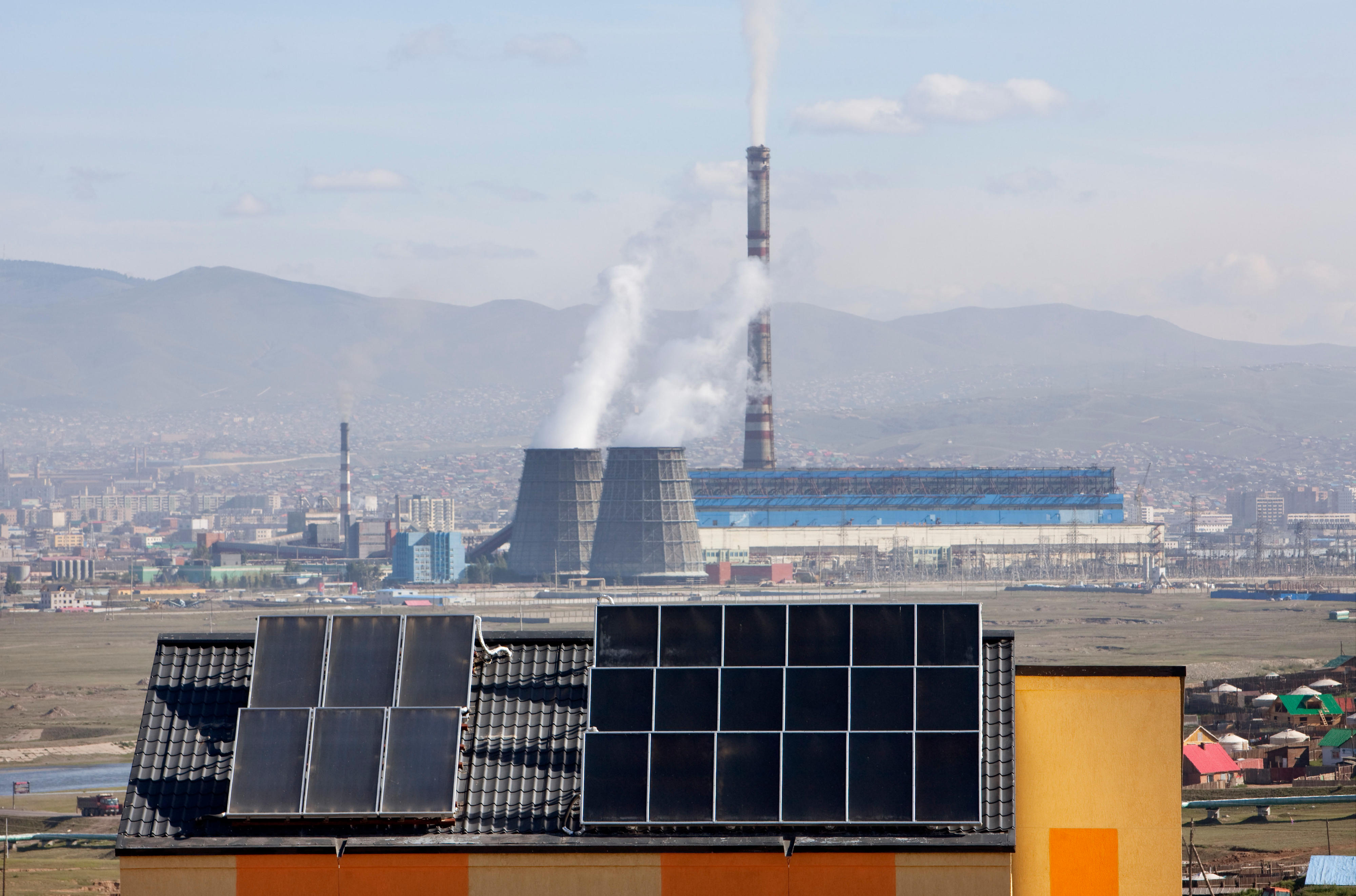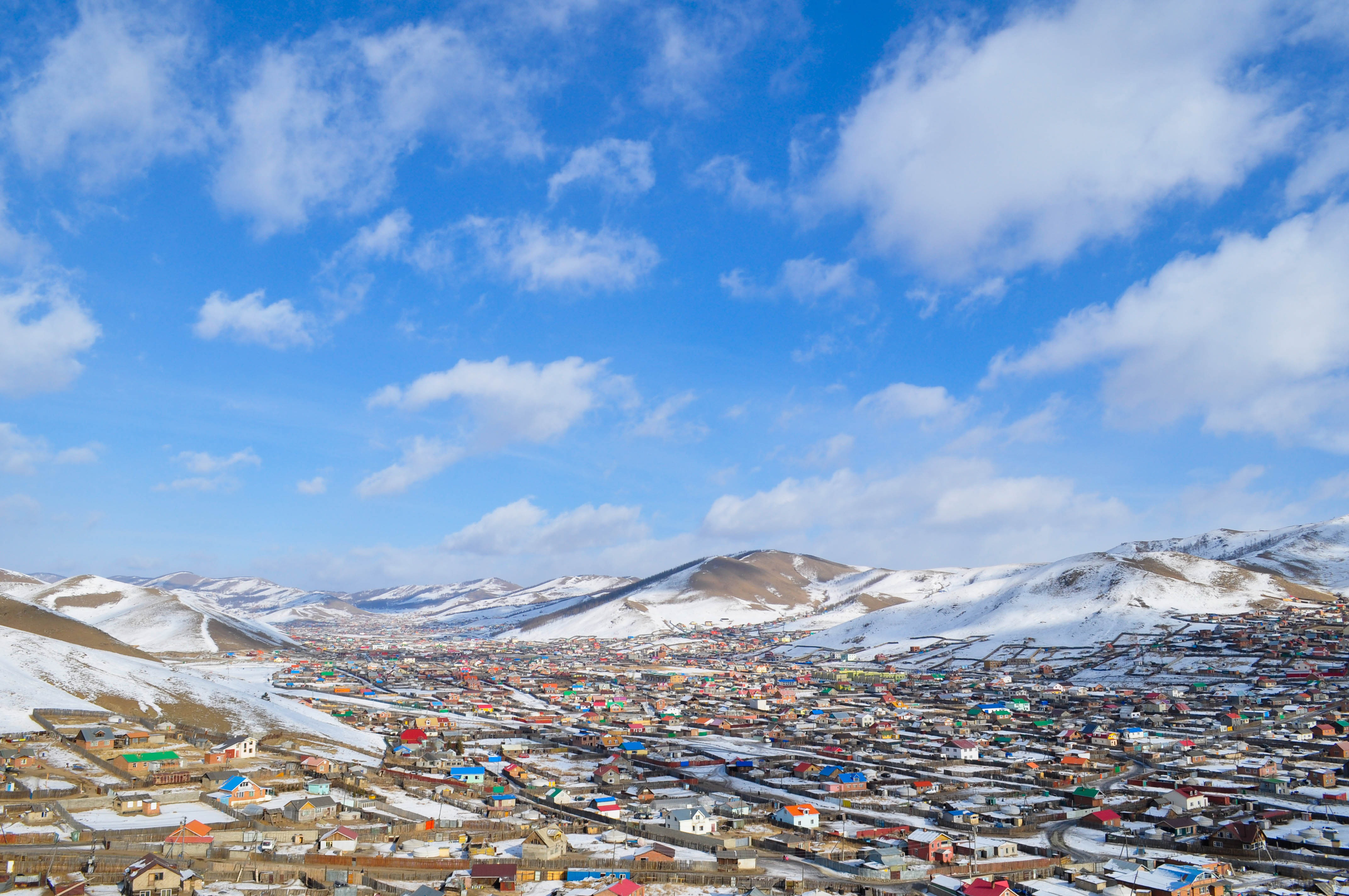Solar plant and coal-fired power station in Ulan Bator, Mongolia
Copyright© Thomas Köhler/photothek.net
Core area “Climate and energy, just transition” Modernising power and heating supply, promoting renewable energy
The country’s transmission and supply infrastructure is also outdated and unreliable. Heating supply failures are a regular occurrence. In some cases, buildings are losing up to 70 per cent of their heat due to a lack of insulation.
In cities, especially in the capital Ulan Bator, the population suffers from extreme levels of air pollution during the winter months, which leads to widespread serious respiratory problems. This pollution is caused by coal-fired power stations on the one hand and, on the other hand, by a great number of people burning raw coal, wood and even waste in their stoves.
Mongolia has huge potential for sourcing renewable energy, yet currently only around 10 per cent of the country’s energy comes from wind, solar or hydropower. In 2024, as part of their strategic partnership, Germany and Mongolia agreed to increase the use of renewable energy, implement measures to boost energy efficiency and strive for a just transition to a climate-friendly economy.
Supporting modernisation
A suburb of the Mongolian capital Ulan Bator
The German Development Ministry (BMZ) is supporting the modernisation of power plants, substations and public distribution grids. This will increase energy efficiency while at the same time cutting greenhouse gas emissions.
In order to reduce air pollution and the related health risks in Ulan Bator, experts are working closely with the local administration and construction companies to refurbish and improve the energy efficiency of public buildings such as schools and kindergartens. The results are already visible: sickness levels are measurably lower in schools with improved insulation than in unmodernised education facilities.
Training skilled workers for the energy transition
Another area in which Germany is active is offering advisory services in the energy and education sectors. For historical reasons, staff at public energy companies have extensive experience with fossil fuel power plants, but lack knowledge regarding the potential of renewable energy. This is delaying the decision-making processes required for the energy transition to progress. There is also a shortage of qualified skilled workers who can help modernise the power grid and maintain it stably. In addition, energy from renewable sources can currently only be fed into Mongolia’s outdated electricity grid to a limited extent.
In response, a technical cooperation project has been launched to assist the energy sector in determining the potential of decentralised renewable energy systems, developing a concept for feeding renewable energy into the power grid and creating an appropriate tariff system. Support is being given to school-based and workplace-based training facilities to assist them in developing teaching plans for high-voltage technicians that include the integration of renewable energy into the power grid. There is a special focus on supporting women, who are significantly underrepresented in Mongolia’s energy sector.
Strengthening legal certainty
Achieving a just transition to a climate-friendly economy and way of life requires a good business climate, and with it a reliable legal framework. Foreign investors in particular are currently deterred by the lack of legal protection and the overburdened justice system. The BMZ is therefore assisting the Mongolian government in its efforts to establish the necessary legal foundations and increase the effectiveness of the judiciary. Support is also being given to measures for combating corruption in Mongolia’s justice system.
As at: 20/06/2024

